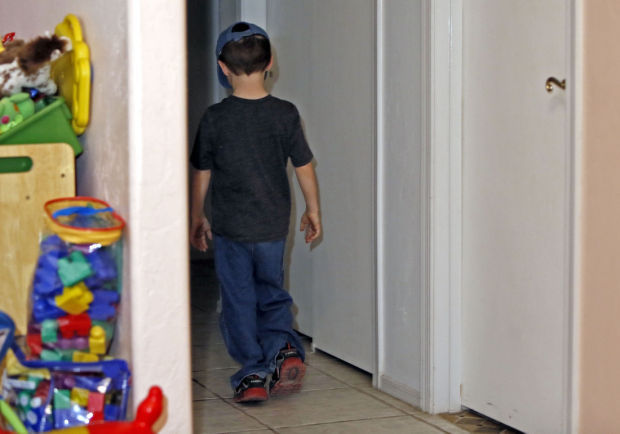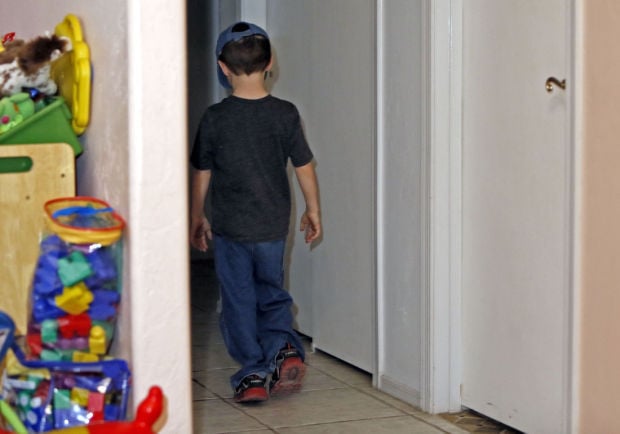Arizona wants feedback on the nearly 600 pages of rules that will govern its new child welfare agency — but many of those affected say they didn’t know their opinions were sought and they don’t understand what’s changing under the new system.
The rules are posted on the Department of Child Safety website (dcs.az.gov/about/dcs-rules-rulemaking) as part of the agency’s move away from oversight by the state’s Department of Economic Security. The agency was called Child Protective Services until 2014.
Many of the rules for child-abuse investigations, adoption and foster care remain the same under the proposals, but changes are mixed in. That concerns some stakeholders, who say they do not have time to wade through the voluminous documents. And even if they did, changes are difficult to spot.
The state has been accepting comments on the new rules since July and will continue to do so through September, but the comment period for some rules has ended. Public hearings have already been held here and in Maricopa County, and more are scheduled in coming weeks.
“There is nothing that has not been open for comment,” said Doug Nick, a DCS spokesman. Program managers here were notified, he said, and asked to alert others who would be interested. Also, a notice was posted on the DCS website.
“We are trying to get the word out as best we can,” Nick said. Still, he could not provide a list of proposed changes to help people see what’s new.
“We have to do this in rolling stages because there’s so much,” he said. “Some are closed because there are so many and we couldn’t take the comments all at once.”
Dawn Teo of the Foster Children’s Rights Coalition said the state should have done more to notify families who are interested, and potentially impacted. Proposed changes were “buried on the DCS website,” she said.
Foster parents like Daphne McKee, who provides a home to four foster children, said she learned about the proposed changes by chance on Facebook last week. Lin Leclair-Turner, another longtime Tucson foster parent, said she was not notified and neither were several other foster parents she knows. She has read most of what’s proposed and feels too much of it is “open to interpretation.”
Among the proposed changes that concern foster families:
- No more than four children will be allowed in one bedroom. Some foster homes have large spaces that easily fit more beds than that, critics say.
- A top sheet must be provided for each bed. Some foster parents wonder why something so basic would be mentioned at all. And in some cases, they say, top sheets are not appropriate for children with sensory issues who don’t like to sleep under bed covers. (Nick said this simply requires that the sheet be provided, not that a child must use it).
- Families must have a court order to take a foster child out of the state. That would place an unreasonable burden on families that want to go on vacation or need to attend an out-of-state funeral, opponents say, and would tax an already overburdened court system. (Nick said this was erroneously written into the draft and will not be implemented except for out-of-state trips of more than 30 days.)
- All foster homes must have fences around their pools, regardless of the age of their foster children. Now, that is the case only in foster homes with children under age 6. (Nick said existing foster homes without fences would be grandfathered in).
The proposed changes might work if Arizona had only a few thousand children in the system, but it has 17,000 and desperately needs more foster homes, said Ron Adelson, who heads Aid to Adoption of Special Kids and is a foster parent himself. The new rules don’t reflect reality and could make things worse for Arizona children, not better, he said.
“Unfortunately, it could mean more children are going to end up in congregate care,” he said. “They are using this as an opportunity to rewrite the rules, yes. Is the average person hearing about this? No.”
Now, DCS places many children in the homes of relatives who are not licensed foster parents, so these rules don’t apply, he said. The new rules could prevent kinship foster parents from getting licensed because they can’t conform, he said.
The new rules must be finalized by Oct. 26.





